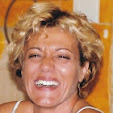03 November 2013
True devotion to Deity is the obedience of all the laws of His nature
Posted by Luisa Rodrigues Luisa Rodrigues at 13:49 0 comments
Labels: Everything Afterlife – Messages from Angels, Everything Afterlife – Scenes in the Land of After-death, Inspiring Words
Man is the bud, which will go on unfolding its powers until it reaches the throne of the Omnipotent Mind
Posted by Luisa Rodrigues Luisa Rodrigues at 12:23 0 comments
Labels: Everything Afterlife – Messages from Angels, Everything Afterlife – Scenes in the Land of After-death, Inspiring Words
Man is an animalcule on the earth
Posted by Luisa Rodrigues Luisa Rodrigues at 11:34 0 comments
Labels: Everything Afterlife – Messages from Angels, Everything Afterlife – Scenes in the Land of After-death
I am almost at the end of the race for wisdom
Posted by Luisa Rodrigues Luisa Rodrigues at 11:28 0 comments
Labels: Everything Afterlife – Messages from Angels, Everything Afterlife – Scenes in the Land of After-death
30 October 2013
Gratitude will cause the tear to flow and the heart to palpitate sooner than the other emotions
Posted by Luisa Rodrigues Luisa Rodrigues at 16:33 0 comments
Labels: Everything Afterlife – Messages from Angels, Everything Afterlife – Scenes in the Land of After-death
Affections set the mind on the plane of angels
Posted by Luisa Rodrigues Luisa Rodrigues at 16:28 0 comments
Labels: Everything Afterlife – Messages from Angels, Everything Afterlife – Scenes in the Land of After-death, Inspiring Words
Prayer without action is nothing
Posted by Luisa Rodrigues Luisa Rodrigues at 09:50 0 comments
Labels: Everything Afterlife – Messages from Angels, Everything Afterlife – Scenes in the Land of After-death


_Star-Forming+Pillar+of+Gas+and+Dust+NASA,+H.+Ford+(JHU),+G.+Illingworth+(UCSC+LO),+M.Clampin+(STScI),+G.+Hartig+(STScI),+the+ACS+Science+Team,+and+ESA.jpg)




